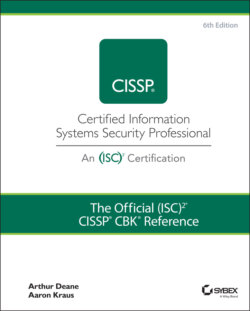Читать книгу The Official (ISC)2 CISSP CBK Reference - Leslie Fife, Aaron Kraus - Страница 111
Employment Agreements and Policies
ОглавлениеWhen joining an organization, an employee generally signs an employment contract that may include one or more employee agreements that make certain stipulations by which the employee must abide. The most common employee agreements are nondisclosure agreements and noncompete agreements.
A nondisclosure agreement (NDA) is an agreement that restricts an employee or contractor (or anyone else with access to sensitive information) from disclosing sensitive information they obtain through the course of their employment or relationship with an organization. An NDA is designed to protect the confidentiality of the organization's data (such as trade secrets or customer information) and is often a lifetime agreement (even after the employee leaves the company).
A noncompete agreement is an agreement that restricts an employee from directly competing with the organization during their employment and, in most cases, for a fixed time after employment. Noncompetes are one-way agreements that are designed to protect organizations from unfair competition by former employees or contractors. As an example, if you are hired as a hardware engineer for a mobile phone designer, you may be required to sign a noncompete stating that you will not work for other companies that design mobile phones for at least 18 months after termination of your employment; the idea here is that your inside knowledge of the company will present less of a disadvantage after those 18 months.
In addition to NDAs and noncompete agreements, employees may be responsible for reviewing and/or signing various employment policies such as acceptable use policies, code of conduct, or conflict of interest policies.
